4 Things You Must Know About Reaching Your Writing Goals
 As we flip calendar pages and the year changes from 2013 to 2014, any of us will look back, count up victories, suck up disappointments, and gaze forward with renewed resolve that this is the year we will finally figure out how to achieve that goal.
As we flip calendar pages and the year changes from 2013 to 2014, any of us will look back, count up victories, suck up disappointments, and gaze forward with renewed resolve that this is the year we will finally figure out how to achieve that goal.
I’m a pretty persistent person, but I won’t lie. More than once on my journey to attain my goals to write and publish my novels PEACE BY PIECE and CAPE MAYBE, I considered giving up, taking a hammer to my keyboard, and destroying every draft.
One of those discouraging times was about two years ago, when I started to research self-publishing and book marketing. I had written two novels and thought the hard part was over. How challenging could publishing and marketing be?
At the time, I was a social networking neophyte and the list of social networking must-haves and options—Goodreads, Facebook, LinkedIn, Twitter, YouTube, a website, blog, newsletter/mailing list, platform, book trailer—nearly did me in.
Eventually, my initial meltdown wore off and my persistence gene kicked-back in, reminding me that in spite of being clueless about how to craft a novel when I joined my first critique group about 15 years ago, I had reached my goal and written not one but two books. Couldn’t I apply the same goal achievement tactics to self-publishing and marketing?
Here are the tips that helped me succeed. While I talk about them related to achieving my writing and publishing goals, regardless of your personal aspirations, these simple tips can help you make your dreams a reality, too.
 Tip #1 – PUT YOUR GOALS IN WRITING
Tip #1 – PUT YOUR GOALS IN WRITING
So here’s the first question. “Are your goals written down?”
Experts say that unwritten goals are really just good intentions—written goals more than double your chances of success. According to psychologist and author Heidi Grant Halvorson, Ph.D. (http://www.heidigranthalvorson.com/) only 20-30% of unwritten goals are realized. That means 70 to 80% of the time intentions do not do it, you need to write your goals.
If you need goal writing help, Google “S.M.A.R.T goals.” You’ll find a wealth of information and tutorials online about writing goals that are Specific, Measurable, Attainable, Relevant, and Time-bound.
Tip # 2 – BE SPECIFIC
To get where you want to go, be precise about your destination.
For years I said, “I want to write a book”—a lofty goal but not very specific. Would it be fiction or non-fiction, romance or business, historical or contemporary? Until I knew the specifics, it was impossible to start.
Think of it this way. If you are in New York and want to visit your aunt in Florida, you don’t just program Florida into your GPS. You put in a specific city, street name, and address. It’s exactly the same with writing specific goals. Eventually, “I want to write a book” became, “I want to write a contemporary novel for women about family, relationships, and love.” That more specific goal gave me a place to start. More importantly, it gave me a clear destination.
 Tip # 3 – CHUNK IT DOWN AND COMMIT TO TIMEFRAMES
Tip # 3 – CHUNK IT DOWN AND COMMIT TO TIMEFRAMES
To achieve a goal, especially a lofty goal, it helps to break the work down into the concrete nuts and bolts that will get it done. I like to think of it this way. When Christopher Columbus stood on the shores of Spain and announced to Queen Isabella that he wanted to sail to America, he was still standing on the shores of Spain! To get to America he had to chunk it down into specific tasks—buy lumber, build a boat, hire a crew, stock the boat with rations—you get the picture.
I will build a social networking presence is an intention not a time-bound plan. As you chunk-down your tasks and make them time-bound, you identify exactly what you will do and when you will do it.
As I stuck my toes into the self-publishing process, my chunked-down list included weekly commitments like:
* Research and follow at least two blogs about writing and self-publishing
* Create a Facebook author page
* Meet with Richmond (a self-published author friend) and pick his brain about his process
* Create a Goodreads account
* Visit the Createspace homepage and research author services
* Build a blog page
Chunking it down makes the goal manageable and gives you small wins along the way. Those wins recharge your batteries to master the next week’s task.
Tip # 4 – INCLUDE THE POWER OF IF/THEN IN YOUR PLAN
If/then planning means deciding in advance what you’ll do when something derails your plan. Life is unpredictable. Although I consider my writing and weekly self-publishing and book promotion commitments sacred and non-negotiable, stuff happens. My if/then plan includes things like, if we have company for the weekend and I can’t be on the computer, then, I will get up a half hour early all week to complete my tasks in the early morning.
Having an if/then plan, prevents you from feeling discouraged, resentful, or powerless when everyday life threatens to disrupt your plan.
Word by word, sentence by sentence, chapter by chapter, you might say piece by piece (pun intended) these tips helped me write and self-publish my novels.
How about you? What goals do you want to achieve? And which of these tips could help make this the year you attain your goal and hold your dream in your hands?
—
Carol Fragale Brill is the author of two novels, PEACE BY PIECE and CAPE MAYBE. She earned an MFA in Creative Writing from Fairleigh Dickinson University. Her fiction received recognition from Poets and Writers and was a reader’s favorite for The Best of Philadelphia Stories. Her works have also appeared in Wide Array, New York Journal of Books, the Press of Atlantic City, and various online e-zines and business journals. In her “day job” as a Leadership Coach and educator she frequently uses stories in training.
Visit her website , follow her on facebook Carol-Fragale-Bril or Twitter – @carol_brill She can also be found on goodreads: Carol_Fragale_Brill
Category: Contemporary Women Writers, How To and Tips
Comments (20)
Trackback URL | Comments RSS Feed
Sites That Link to this Post
- Featuring Women Writers on WWWB 2013 - Women Writers, Women Books | December 31, 2013






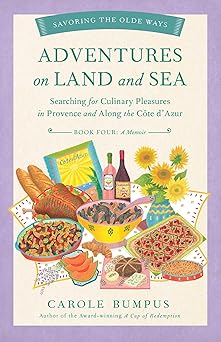

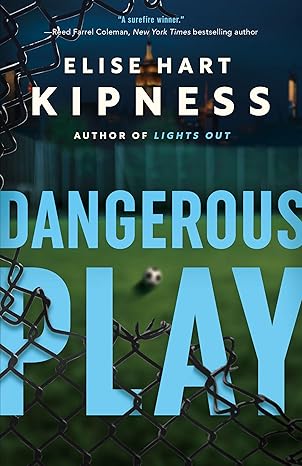
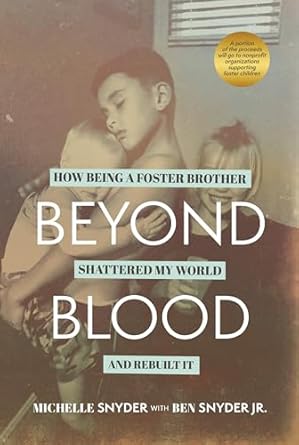
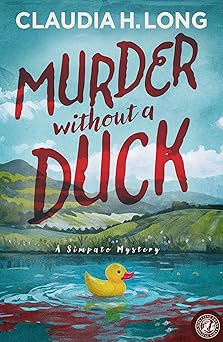


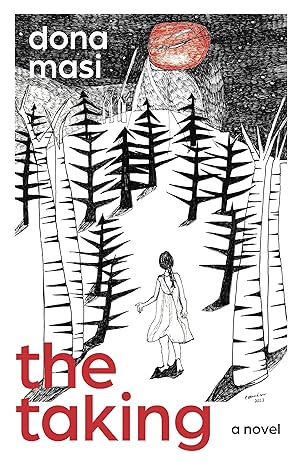



I’d also recommend sharing your goals with others, whether it’s friends or family or co-workers. You will be more likely to work towards your goal when others are involved and will help to hold you accountable.
Kristen, agree sharing is a great way to boost accountability. Thanks for reminding us. Carol
Great advice Carol and so timely. Read this as I sat back down to work today after Christmas and New Year had put paid to any good intentions over the last couple of weeks. Wish I’d had the if-then idea two weeks ago but will definitely be using it this year. Thanks 🙂
Allison, I’m thrilled to hear from so many that if/then will help. I have to give credit to Heidi Grant Halvorson and her book on goals which is where I learned it. Best of luck. Carol
Alison, so many readers honed in of if/then, I feel the need to give another shout out to Heidi Grant Halvorson, Ph.D. (http://www.heidigranthalvorson.com/
I learned that technique from her
hope it helps,
carol
Thanks Carol – I have signed up for her newsletter, looks very helpful.
Thanks for letting me know. All the best meeting your goals. best,
carol
Hi Carol,
What timely and helpful advice to find on this New Year’s Day and beginning of a new year. I found you, with this, my first foray on Twitter. Your suggestions make concrete a path I have mused about and now wish to make real. From one Jersey girl to another…out here in the frozen tundra of WI. THANKS!
Jo Anna
Jo Anna, happy to hear from another Jersey Girl. Sounds like your first written goal might be how to stay warm in the WI winter blizzard. Hope to see you again here and on Twitter. best, carol
Good tips! I always write out my short-term & long-term goals, but never did an If/Then plan. What an excellent tip – and I’ll be incorporating it into my written goals from now on. Thanks for this useful article.
Jennifer, Congratulations, you’re already ahead in the game by writing your short and long term goals. All the best using if/then
best,
carol
Carol,
It is encouraging to see that a successful novelist has also been through this ‘I considered giving up, taking a hammer to my keyboard, and destroying every draft.’ Thank you! 🙂
Hi Dilek, I suspect many (most??) writers have been there.
For me, one of the hardest parts of the writing journey was learning to toughen up and learn from each disappointment. Accepting the downs and frustrations as opportunities to learn something I needed to know helped me become a much better writer.
Carole this is a brillaint post to take me into 2014. With so many things I’d like to achieve this will help, not only with my writing,but other projects too. I particularly like the if/then approach. I cna see that working for me. Good luck with the novels and here’s to a successful 2014!
Fran, so glad the tips will be useful. I’m confident you will find if-then very helpful.
All the best for success as you reach for your 2014 goals, too.
Thanks, Carole, great pointers, and even more important, well presented and explained. Thanks! I like your line that “unwritten goals are just good intentions.” Of course, we know where those will take us. 🙂
Hi Marialena, Guess all of us have been bit by good intentions that fizzled.
Btw, There’s a character in my novel, Peace by Piece named Marie Eleana. Different spelling, but guessing it has the same lyrical sound. Best, carol
Great advice, especially #4!
Diane, glad you like the tips. If-then planning has saved me a lot of temper tantrums 🙂